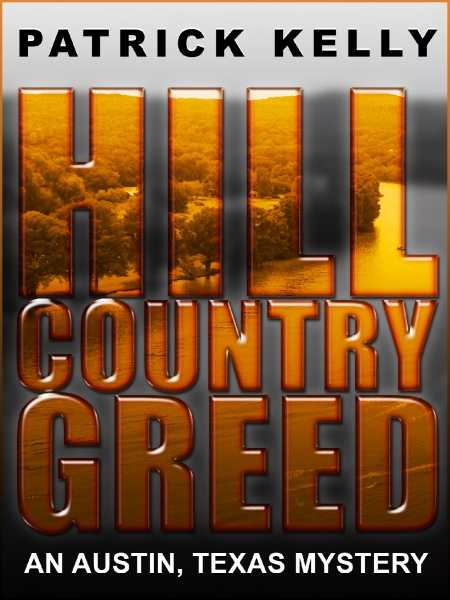Hill Country Greed
An Austin, Texas Mystery
As the ‘90s dot-com bubble swells, it’s all high-stakes money, sex, and murder in Kelly’s gripping debut.
Like the dot-com business with big dreams at the heart of Patrick Kelly’s debut novel, Hill Country Greed shoots for the moon. The first entry in Kelly’s Austin, Texas Mystery series has it all: ruthlessly ambitious characters, mystifying murders, and sexual escapades—all dependent on high-stakes business deals.
Hill Country Greed opens on Austin in 1999, when financial whiz kid Joe Robbins joins an up-and-coming company that promises great riches for a select few. As Connection Software’s new CFO, Joe is among the elite, and his future hangs on taking the company public and walking away with millions. It’s heady stuff, and Kelly convincingly portrays the naïveté of the dot-com bubble. Details like Joe’s snap decision to relocate his family to an expensive neighborhood where folks are known by what model of Lexus or BMW they drive illuminate a time when wealth seemed like it could grow forever.
Of course it couldn’t, and Kelly builds his story on the ways things could go horribly wrong. Much of this is gripping, especially the unexpected and disturbing murders that Joe must unravel to save his own hide. The first-person narrative convincingly takes Joe’s viewpoint as he tries to figure out how the murders are related to the double-crossing deals that seem to be going down at Connection Software. Kelly is strongest in these scenes, able to provide shocking details that are as riveting as they are repulsive.
Seduced as he is by the prospect of unimaginable wealth, Joe gets sidetracked from the murders, and so does the plot. Board room squabbles and explicit but not terribly unique sex scenes take up large chunks of text. The dialogue in both instances is clear, though unoriginal. Rather than show how enticing his lover is, for example, Joe observes: “When the tension began to build we stroked the sensitive spots until we were ready.” While Joe is still telling the story, his voice becomes distant during scenes that should be absorbing.
Including so many high-drama elements leaves little room to deeply develop characters and their motives. Connection Software CEO Webb Elliot, for example, is known for his charismatic leadership, but there is little that explains why people are so willing to follow him. Joe’s wife, Rose, remains largely an enigma; she’s a smart, sexy housewife and little more. The characters’ superficiality makes it difficult to sympathize with the many players in Joe’s drama. The drama itself, however, is often fast-paced and engaging, particularly the ever-changing cat-and-mouse games at the story’s peak. Kelly succeeds in keeping the mystery unsolved until the very end.
Hill Country Greed is a light read, enjoyable for the uncomplicated but wild ride. More of Joe Robbins is forthcoming in the continuing series.
Reviewed by
Sheila M. Trask
Disclosure: This article is not an endorsement, but a review. The publisher of this book provided free copies of the book and paid a small fee to have their book reviewed by a professional reviewer. Foreword Reviews and Clarion Reviews make no guarantee that the publisher will receive a positive review. Foreword Magazine, Inc. is disclosing this in accordance with the Federal Trade Commission’s 16 CFR, Part 255.

